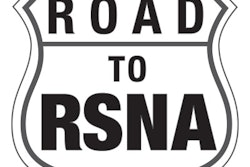Monday, November 26 | 11:30 a.m.-11:40 a.m. | SSC03-07 | Room E451A
In this session, California-based researchers will discuss the distinct cancer profile of socioeconomically disadvantaged minorities at high risk of lung cancer who participated in a free CT lung screening program.A team of clinicians from the University of Southern California developed a CT lung cancer screening program that offered free exams for socioeconomically disadvantaged minorities residing in the Los Angeles area. Participants also had to meet the U.S. Preventive Services Task Force eligibility criteria for lung cancer screening.
Among all the individuals referred to the program, 370 met eligibility criteria and agreed to undergo baseline CT lung cancer screening, followed by two additional annual screens. The individuals predominantly were black (77%), and 81% were current smokers.
"We were inspired to research this topic because, within minority and socioeconomically disadvantaged populations, limited access to healthcare can result in lower rates of lung cancer screening compared to the general population," presenter Dr. Charles Li told AuntMinnie.com.
After screening, the researchers found that most of the individuals (84%) had a Lung Imaging Reporting and Data System (Lung-RADS) score of only 1 or 2, though they did diagnose lung cancer in three individuals. The clinicians also reported potentially significant incidental findings, such as interstitial lung disease and severe emphysema, in 28% of the participants.
Despite it being a free program with transportation to and from the screening location, only 54% of those eligible returned for follow-up screening.
"The implications are that these populations may experience differential benefits, including detection of cancer at later stages, from low-dose CT lung cancer screening," Li said.




















